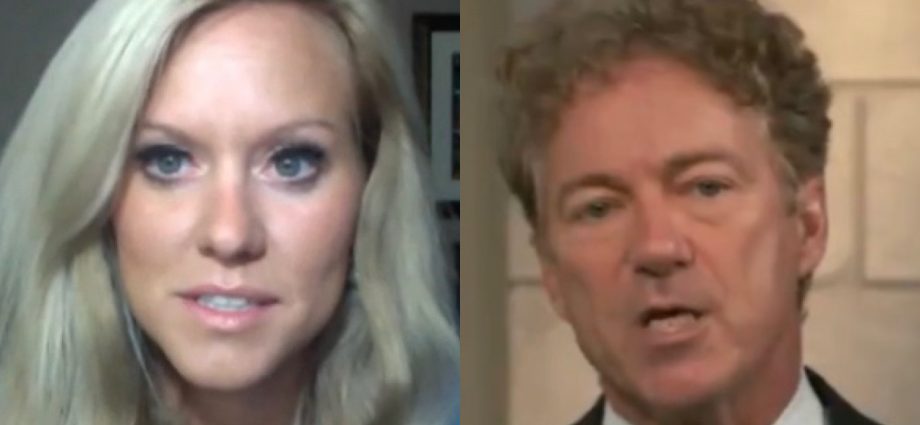Republican Senators Marsha Blackburn (TN), Rand Paul (KY), Rick Scott (FL), Ron Johnson (WI), Mike Lee (UT), and Ted Cruz (TX) were the only ones in that body of Congress to vote against the $900B “COVID relief bill,” which included a $1.4 trillion catchall spending bill and thousands of pages of other end-of-session business in a massive bundle of bipartisan legislation as Capitol Hill prepared to close the books on the year.
The bill, which was approved last night went to President Donald Trump for his signature, which many believe is expected in the coming days, although it is expected that many of his supporters will lobby against its passage.
As former Republican Delaware Senate candidate Lauren Witzke, put it, “These six senators are the only ones who voted against the foreign aid ‘stimulus package.'”
Witzke then listed the senators and continued, “Everyone else voted for a package they didn’t even read, for a Bill written by corporate lobbyists.”
“But don’t worry, January 6th will be different,” Witzke concluded, sarcastically.
But don’t worry, January 6th will be different.
— Lauren Witzke (@LaurenWitzkeDE) December 22, 2020
One Twitter user pointed out that he believes, “Yes but they all voted against it for the wrong reasons.”
Witzke responded, “Except Rand, who vehemently and consistently opposes all foreign aid.”
Except Rand, who vehemently and consistently opposes all foreign aid.
— Lauren Witzke (@LaurenWitzkeDE) December 22, 2020
As the AP put it, the 5,593-page legislation — by far the longest bill ever — came together Sunday after months of battling, posturing and postelection negotiating that reined in a number of Democratic demands as the end of the congressional session approached.
In the House, the measure was approved by another lopsided vote, 359-53 with representatives who have supported the president being against it.
Democrats, however, wanted more to be put in it, but Joe Biden was eager for a deal, even though it was less than half the size that Democrats wanted in the fall.
House Rules Committee Chairman Jim McGovern, (D-MA) bemoaned, “This deal is not everything I want — not by a long shot. The choice before us is simple. It’s about whether we help families or not. It’s about whether we help small businesses and restaurants or not. It’s about whether we boost (food stamp) benefits and strengthen anti-hunger programs or not. And whether we help those dealing with a job loss or not. To me, this is not a tough call.”
- Tim Kaine Provides Cover For Joe Biden on the Border Crisis, Blames Lack of a ‘Robust Work Visa Program’ for ‘Some of the Chaos at the Border’ - March 27, 2024
- Elon Musk Rips NBC For Hiring and ‘Immediately’ Firing Ronna McDaniel ‘That’s How Biased They Are!’ - March 27, 2024
- Marjorie Taylor Greene Makes Move, Files Motion to Vacate Against Speaker Mike Johnson After House Passage of $1.2T Spending Bill - March 22, 2024

